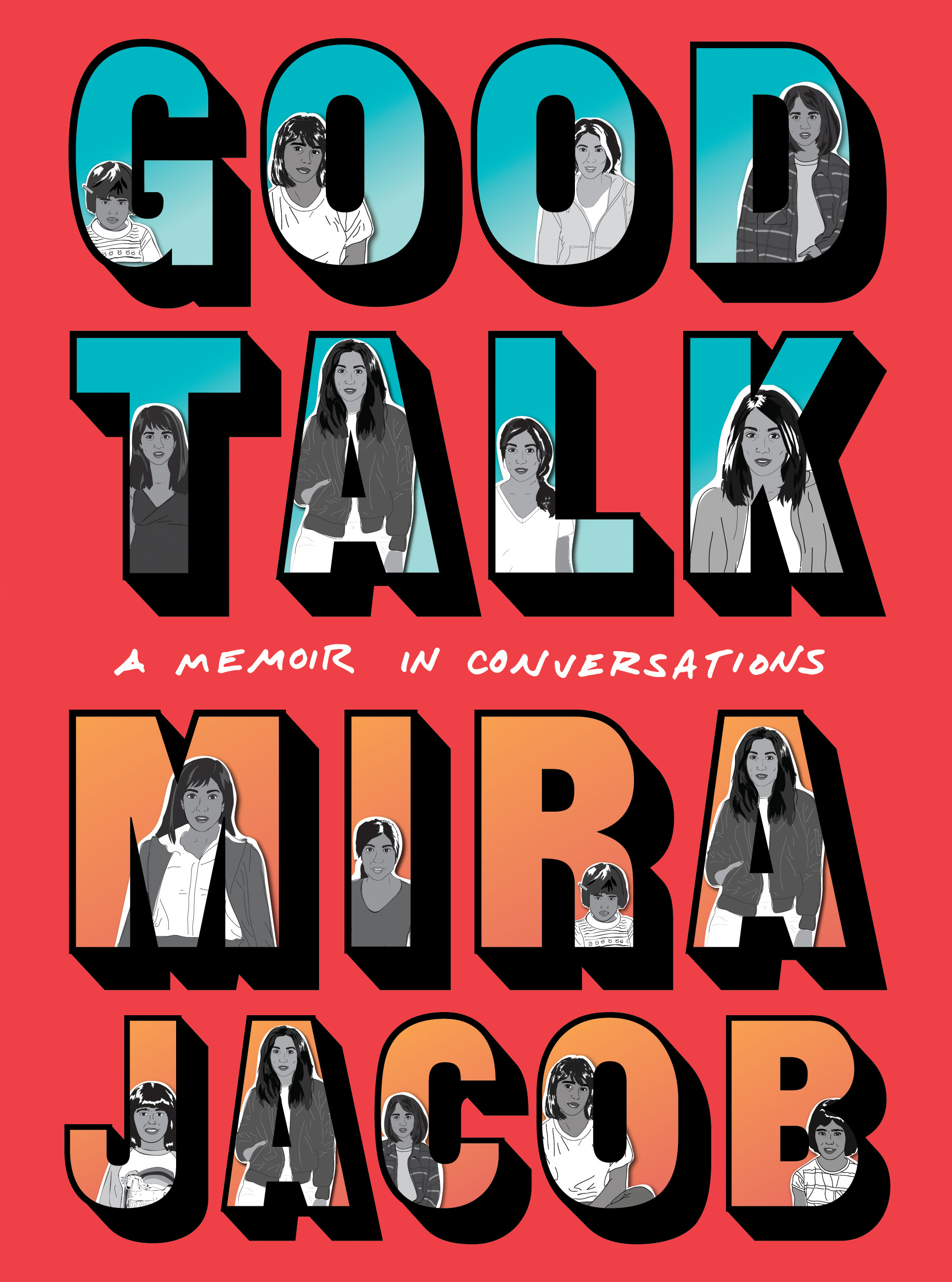It may seem hard to believe, but drawing was once only a hobby for Mira Jacob. Her art didn’t take center stage in her creative life until she began working on her second book and first graphic memoir, Good Talk: A Memoir in Conversations. Which is surprising because Jacob’s illustrations in Good Talk are revelatory. Here, she peoples her world with characters whose static expressions achieve an astounding range of nuance and dimension. The result is an incisive narrative that reveals the complexities of human nature within everyday interactions. Each panel serves as a searing testimony on racism, sexism, motherhood, interracial marriage, colorism, and a nation brimming with suspicion toward brown people after 9/11.
Jacob is a fierce, honest, and scrupulous observer. When she recounts the routine passive-aggression she encounters as an Indian American woman, we are asked — no, we are challenged — to sit with the discomfort of our own complicity. Good Talk is no prescriptive or didactic telling. It is a study of subtlety, of both the spoken and unspoken, of the awkward silences and blank gazes that embody bias and collusion.
For Jacob, being a brown woman is to be both derided and desired. In India, her relatives deem her skin color too dark for a “good” marriage, while in the U.S., white America regards her as both an exotic foreigner and a potential terrorist. Jacob navigates these unsparing judgments with wit and cynicism, and yet, her pain is palpable. And when her in-laws declare their loyalty to Trump, she keenly captures the contradictions of love in the context of white supremacy.
This is not a book for those thirsting for a traditional narrative arc, and thank goodness for that. For Good Talk avoids spoon-feeding moral lessons and is neither offering nor selling redemption. And we, her readers, are richer and far better for it.


 Good Talk: A Memoir in Conversations by Mira Jacob (One World/Random House)
Good Talk: A Memoir in Conversations by Mira Jacob (One World/Random House) 